Charter Spectrum and Frontier Communications are among America’s most-hated telecom companies, especially east of the Mississippi River, according to the latest J.D. Power 2018 Residential Satisfaction Study that measures customer satisfaction scores across four geographic regions of the country.

Among the best for internet access, AT&T/DirecTV took top honors in their wireline service areas in the south, north-central, and parts of the western United States where gigabit fiber upgrades have dramatically improved service over older DSL and U-verse internet products. In the east, Verizon’s FiOS network was by far the best rated ISP.
“It is clear wireline companies are putting the customer experience first, and it is paying off,” said Ian Greenblatt, Technology, Media & Telecom Practice Lead at J.D. Power. “Finding ways to make call centers more efficient and clarifying billing statements and contracts are just a few relatively easy things companies can be doing to improve the customer experience. Additionally, methods in which companies are communicating service and product updates have been evolving with the technology itself and has proven to be a valuable approach to high customer satisfaction.”
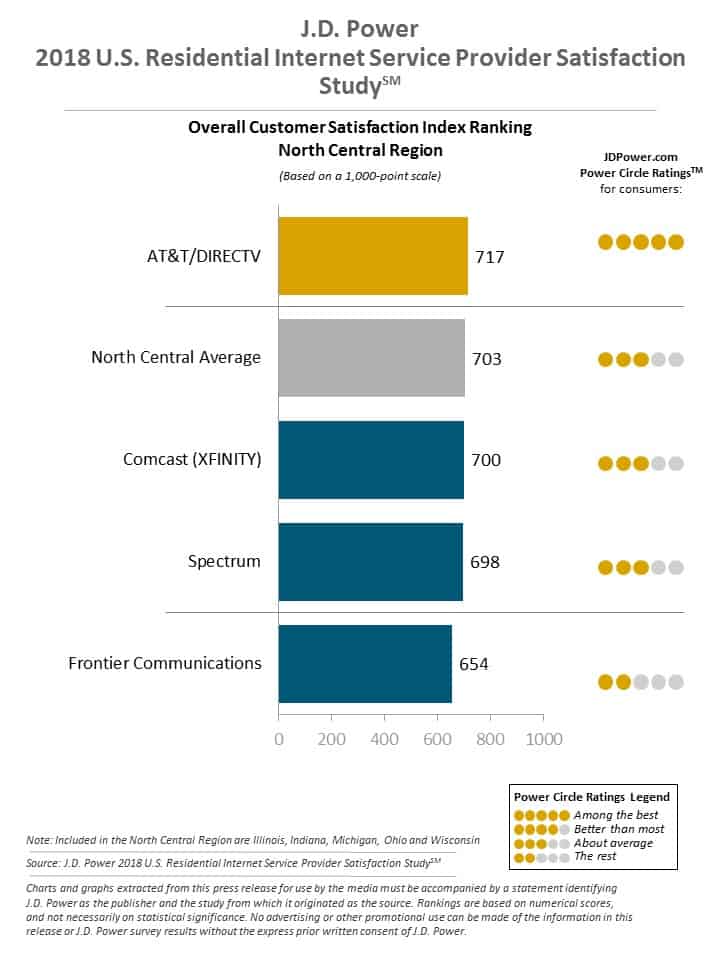
Also scoring above average for internet service:
- West: Cable One, Cox Communications, Spectrum, Comcast/XFINITY
- South: Comcast/XFINITY
In the eastern and north-central regions, Spectrum scored second worst for internet access, only avoiding last place because Frontier Communications, which relies primarily on DSL service in these areas of the country, did worse.
In the south, Suddenlink scored poorly, but not as bad as regional phone companies Frontier, CenturyLink, and bottom-rated Windstream, which all offer DSL service.
In the west, customers especially loathed CenturyLink, Mediacom — Consumer Reports’ perennial favorite for worst cable operator, and dead last Frontier.
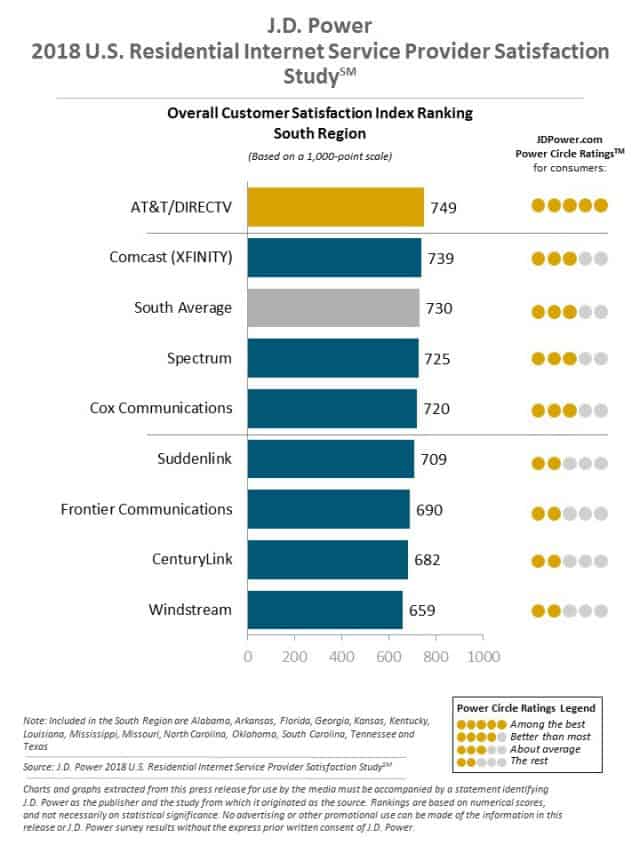
Comcast appears to have improved its customer satisfaction scores slightly when compared against almost 20 years of earlier satisfaction studies performed annually by J.D. Power. In contrast, Frontier continues its decline in customer satisfaction, predominately in areas where it still only offers DSL service. Charter’s acquisition of Time Warner Cable and Bright House Networks appears to have done few favors for consumers, who dislike Charter Spectrum just as much, if not more than its predecessors.
The ratings are based on responses from 27,765 customers that returned surveys evaluating cable/satellite/telco TV, internet access and landline telephone providers. Customers were asked to rank each provider on network performance and reliability, cost of service, billing, communication, and customer service.
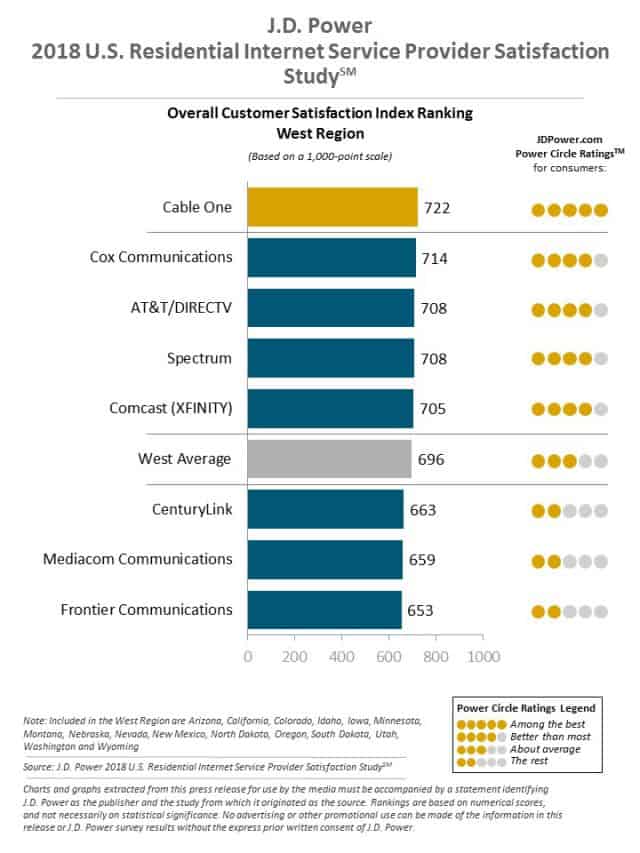


 Subscribe
Subscribe Hulu could soon be in the hands of Disney, as a high stakes game of asset trading overseas could have a dramatic impact on the streaming service.
Hulu could soon be in the hands of Disney, as a high stakes game of asset trading overseas could have a dramatic impact on the streaming service.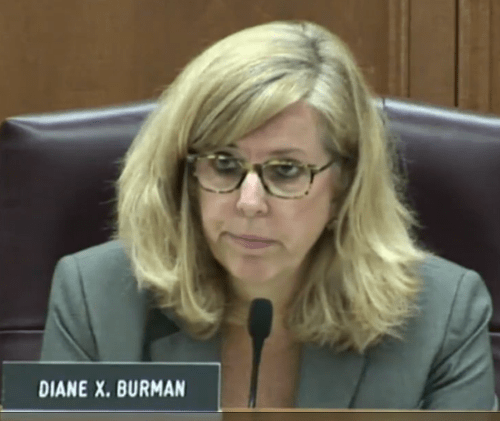
 An attorney for Charter Communications revealed that company officials and New York telecom regulators were engaged in a “productive dialogue” over how to resolve the state’s dispute with the cable operator.
An attorney for Charter Communications revealed that company officials and New York telecom regulators were engaged in a “productive dialogue” over how to resolve the state’s dispute with the cable operator. Charter’s lawyer suggests it is in the Commission’s best interest to accept additional delays in the deadlines to file
Charter’s lawyer suggests it is in the Commission’s best interest to accept additional delays in the deadlines to file 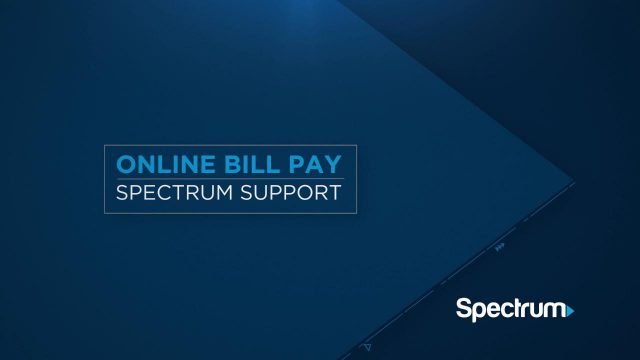 This can become a problem for customers who keep a low balance in their checking account and expect those funds to be immediately available to pay bills or make a cash withdrawal. Because of the extended hold, customers could unintentionally overdraw their checking account, leading to overdraft fees or an automatic draw from a line of credit, if one is attached to your checking account. La Voie had enough money in her account to avoid an overdraft, but she was concerned about those who don’t.
This can become a problem for customers who keep a low balance in their checking account and expect those funds to be immediately available to pay bills or make a cash withdrawal. Because of the extended hold, customers could unintentionally overdraw their checking account, leading to overdraft fees or an automatic draw from a line of credit, if one is attached to your checking account. La Voie had enough money in her account to avoid an overdraft, but she was concerned about those who don’t.